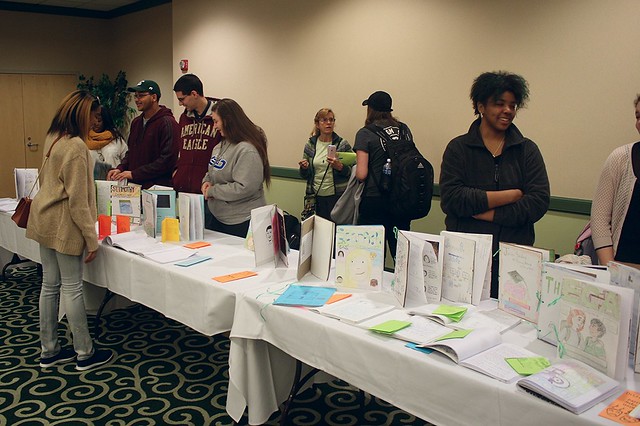The EMU First-Year Writing Program has delivered the following titles to Halle Library as part of its resources initiative. Titles will be available for check-out later this summer.
- Rhetorical Listening: Identification, Gender, Whiteness (Studies in Rhetorics and Feminisms) by Krista Ratcliffe
- Networking Arguments: Rhetoric, Transnational Feminism, and Public Policy Writing (Pitt Comp Literacy Culture) by Rebecca Dingo
- Writing Studies Research in Practice: Methods and Methodologies by Lee Nickoson and Mary Sheridan
- Feminist Rhetorical Practices: New Horizons for Rhetoric, Composition, and Literacy Studies (Studies in Rhetorics and Feminisms) by Jacqueline Jones Royster and Gesa Kirsch
- Exploring Composition Studies: Sites, Issues, Perspectives by Kelly Ritter and Paul Matsuda
- The WPA Outcomes Statement-A Decade Later (Writing Program Administration) by Nick Behm, Greg Glau, and Deb Holdstein
- Outcomes Book: Debate and Consensus after the WPA Outcomes Statement by Susan Harrington and Keith Rhodes
- Writing against Racial Injury: The Politics of Asian American Student Rhetoric (Pitt Comp Literacy Culture) by Haivan Hoang
- Stories of Mentoring: Theory and Praxis (Lauer Series in Rhetoric and Composition) by Michelle Eble and Lyne Lewis Gaillet
To make additional requests, please complete the Book/Material Purchase Request Form.



